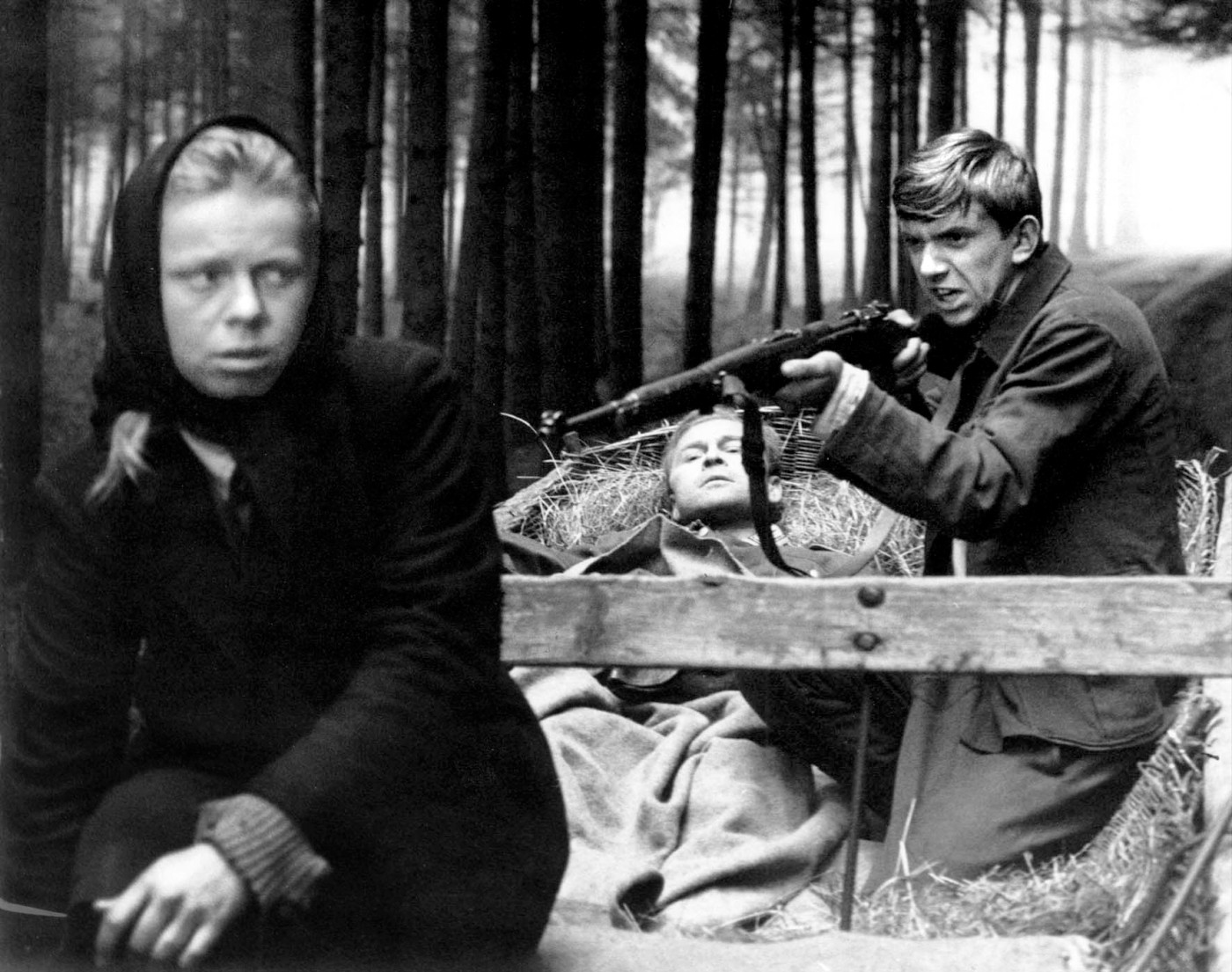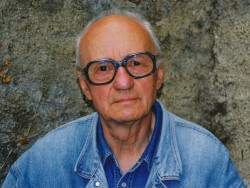
Special Events 2015 / Kočár do Vídně / Czechoslovakia 1966
In its day, this drama of revenge sought by a countrywoman against two soldiers of the Wehrmacht was a radical negation of how the war had usually been viewed: in every Czech film Germans, without variation, were portrayed as unambiguously negative. Sophisticated black-and-white camerawork helped create a mood of suspense in a story that artfully adheres to the unities of place, time, and action.

It’s the last days of the war and Krista is forced to take two Wehrmacht soldiers to the Austrian border in her wagon. One of them is seriously wounded, the other is a terrified rookie. The countrywoman hides an axe in the cart under the straw because she has something quite different in mind... The only backdrop to this deliberately paced drama, which unfolds in a single day, is a long forest road immersed in a silence only occasionally broken by the sounds of the accompanying organ music. The latter contrasts sharply with the raw images and brutal scenes and, by degrees, helps to create the illusion that the forest, with its columns of trees, is slowly transforming into a church – namely the place where we atone for our actions, where we are punished for them, and where we receive absolution. Or where we cast thoughts of bad deeds from our minds, like Krista with her intention to exact a bloody revenge on the soldiers for her husband’s death. During the mid-1960s the film offered a completely novel treatment of the war theme since it rejected the division of the opposing sides into evil Germans and good Czechs, instead portraying the widespread degradation of man in a decayed, violent era.
Zdena Škapová
76 min / Black & white, 35 mm
Director Karel Kachyňa
/ Screenplay Jan Procházka, Karel Kachyňa
/ Dir. of Photography Josef Illík
/ Music Jan Novák
/ Editor Miroslav Hájek
/ Art Director Leoš Karen
/ Producer Jaroslav Kučera
/ Production Filmové studio Barrandov
/ Cast Iva Janžurová, Jaromír Hanzlík, Luděk Munzar
/ Sales Národní filmový archiv

Karel Kachyňa (1924, Vyškov – 2004, Říčany u Prahy, Czech Republic) was part of the first generation of FAMU graduates. Together with Vojtěch Jasný he made a series of documentaries that reflected the spirit of period propaganda. Towards the end of the 1950s he collaborated with writer and scripter Jan Procházka. Their films gradually fell foul of the regime since they controversially sought to uncover the fallacies of the communist interpretation of various historical events. These works include Long Live the Republic (1965), The Nun’s Night (1967), A Ridiculous Gentleman (1969) and the extremely courageous The Ear (1970), locked away in the censor’s vault for twenty years. After Procházka’s death in 1971, Kachyňa still turned out another forty or so works in which he demonstrated his flair for storytelling and for finding poetry in real-life situations (The Doctor’s Coming, 1981; Nurses, 1983; The Cow, 1994).
Národní filmový archiv
Závišova 5, 140 00, Praha 4
Czech Republic
E-mail: [email protected]

Daniel Vadocký
Distributor, Sales Agent

Iva Janžurová
Actress

Michal Bregant
Cinema Representative, Distributor, Film Institution Rep.

Andrea Czesaná
Film Institution Rep.

Briana Čechová
Film Institution Rep.

Barbora Kinkalová
Producer, Service Company Rep.

Zuzana Štefunková
Film Institution Rep., Sales Agent
First-hand brews throughout the year.
Be among the first to learn about upcoming events and other news. We only send the newsletter when we have something to say.